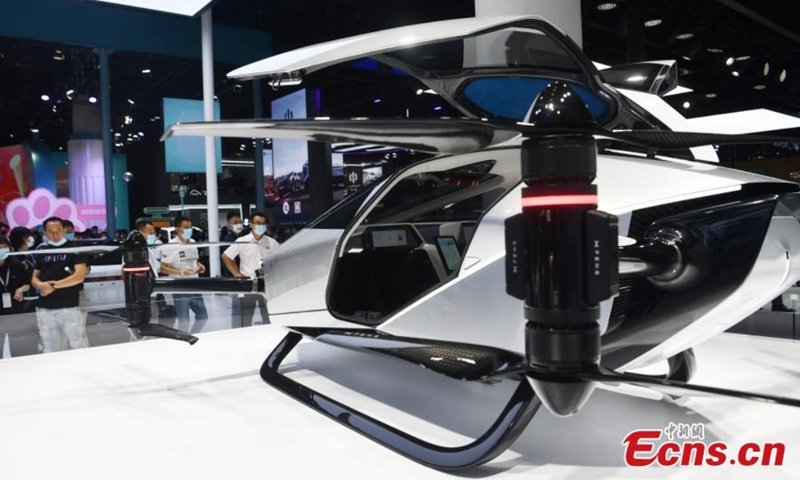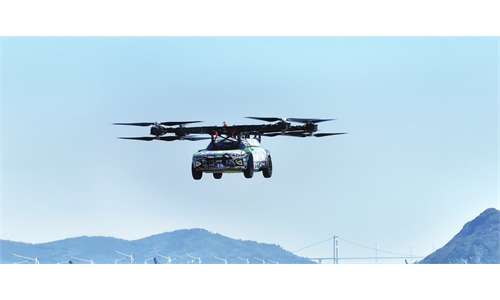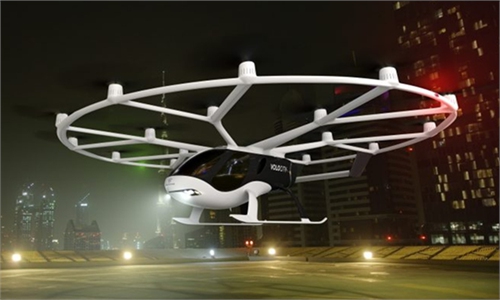
An electric flying car that can carry two passengers and fly at 130 kilometers per hour is on display at the Chengdu International Motor Show in Chengdu, Sichuan on Aug. 29, 2021. Photo: CNSphoto
China’ auto manufacturer Geely Technology Group announced on Tuesday that the flying car developed by its aviation affiliate Aerofugia has successfully taken to the air, the first flight in the Year of Rabbit, marking that the test verification of the AE200 series has entered a new stage.
AE200 is a 5-seater pure electric vertical take-off and landing (eVTOL) aircraft independently developed by Aerofugia, used in urban circles and intercity travel scenarios.
In December, all flight tests of its key system test platforms were completed, with its maiden flight conducted on January 17.
Established in September 2020, Aerofugia is a technology company whose core business lies in low altitude transportation, consumer-grade UAV and smart industry solutions.
With the aim of making flying cars a reality, Geely has accelerated research and development on the technology over recent years. The Hangzhou-based manufacturer completed acquisition of US flying car startup Terrafugia in 2017.
Compared with the maturing new-energy vehicle and intelligent car sector, flying vehicles is a new frontier which has attracted some big bets from Chinese firms.
Aeroht, a flying car company owned by Chinese electric vehicles startup XPeng, announced on Monday that its self-developed flying car XPeng X2 has obtained a special flight permit issued by the Civil Aviation Administration of China (CAAC), the country’s aviation regulator.
“The permit signifies that the development of domestic flying car sector has accelerated, and is marching toward maturity,” the company said in a statement.
The X2 product is the first electric flying car model to apply for the permit in the country and also the first one to receive regulatory approval, according to Aeroht.
The X2 has finished over 3,000 experiments and test flights since its debut in July 2021. Last October, it completed 90-second test flight in Dubai, the United Arab Emirates, after obtaining a special permit in the country.
China has lagged behind the developed economies in the West in terms of traditional aviation sector, and authorities are pinning hope on the newly-emerging flying car industry. Globally, the sector is still in its nascent exploration stage.
China is gradually opening up its lower-altitude airspace for civilian use. In August, the CAAC solicited public comments for a blueprint to achieve urban short-distance, low-speed, light and small logistics distribution through autonomous aerial vehicles by 2025.
Ehang, an urban air mobility service provider based in Guangzhou, capital of South China’s Guangdong Province, went public in the US stock market in 2019. The company’s autonomous aerial vehicles had already been put into commercial use worldwide.
According to McKinsey, more than 250 companies worldwide are developing flying cars, and the list is growing.
Morgan Stanley forecast the global flying car market value will reach $1.5 trillion by 2040, with China accounting for a 28 percent market share.
Global Times



